Bom dia! Our passage from Crookhaven, Ireland to Póvoa de Varzim, Portugal. 4th - 10th August 201712/8/2017
We had a great time spending time with Mattis' family and went on a few sails with them, in and around Crookhaven. West Cork is such a beautiful place. When we arrived, we could have been anywhere, Spain, Portugal... It's a paradise to be able to live here with everything you could wish for, stunning coastline and landscape, clean beaches and clear blue waters.
Passage from Crookhaven, Ireland to Póvoa de Varzim, Portugal.
Day 1. Friday 4th August We set sail at 1100 from Crookhaven, Ireland. The weather forecast looked consistently good for 6 days, so it was a good time for us to make our way. Once we left the mouth of Crookhaven, the waves were moderate and was Force 5/6 (approximately 20 knots). I started vomiting within a couple of hours of setting sail and it carried on for the first day and a half. I slept for a lot of the first day due to being incapacitated. I felt much better in the evening and we were able to continue with our night watches, doing 4 hours at a time.
Day 2. Saturday 5th August
I was still being sick, but not as profusely as the day before and I was able to be on watch more. Over the first two days, I was only able to keep down an apple. I was drinking lots of water and we have sports drinks onboard to replenish ourselves if we got dehydrated. Before we left, I made sure I did all of the precautions well ahead of time, but I have come to accept that you just have to go with it until your body gets used to the motions, even though it's not nice going through it.
Day 3. Sunday 6th August
There was glorious sunshine, the Hydrovane was doing our steering and we were able to sit on deck, clipped on of course, watch and listen to the waves and dolphins. The water was very calm. We 'caught' our first fish, well it landed on the deck, probably dropped by a bird as it had a large rip through it. We were looking at it thinking hmm(?). But, we decided it probably wasn't the best idea to eat it. Over the course of the afternoon, the wind had dropped and there was no more wind in our sails, so we switched on the engine and began motoring. On Mattis' night watch, he was looking to see what was in the water and little silver fish started coming up to the surface. It didn't take long for seagulls to start arriving. Then, dolphins started appearing. Mattis quickly decided to turn off the torch, as he didn't know what might turn up next(!). By the time it was my night watch, we had gotten into the rhythm of doing 5 hour watches. We decided earlier on in the evening, that if there was no wind, we would manually steer with our tiller, instead of using the Hydrovane, as the vane would no longer be controlling the boat. This was the case from 0100 and we steered through the night. We shortly started having problems with our engine, in particular the stern tube, which above 1700 revs, the engine bilge started filling up with water quite rapidly. We decided to keep to a maximum of 1100 revs instead of our normal 1700-2000 revs and we were now only sailing about 3 knots instead of our previous 5-6 knots. In 10 hours, through the night, we had only sailed 30nm because we didn't want to push the engine too hard. Our predicted progress for this trip was at least 100nm a day. At this point, we were now a day behind schedule.
Day 4. Monday 7th August
There was a full moon and it felt like we had a spotlight on us and it didn't really get dark at all. Over the past few days, we'd both been having really vivid dreams at sea. I guess with the rocking motion of the boat, noises inside and outside of the boat, sleeping a few hours at a time and waking up suddenly are big changes to your normal sleeping pattern. This morning we were 100nm from north west Spain. Checking the charts and planning for the next 24 hours, we worked out that there was a possibility that we'd start seeing land from the next morning. There is so much time to think at sea, about life, about what you want to do... Looking at the waves and the ocean, it makes you realise how vast it is and makes you more reflective. Looking at our charts again, we decided that it would now be possible for us to arrive in Póvoa de Varzim on Wednesday as a result of our delay. During the day, we received our first weather fax via our SSB radio and laptop. We wanted to check the weather to see why it had changed. Later on in the afternoon, the wind picked up and we now had Force 4 (13 knots), perfect! The genoa was unfurled again and we shook out the reefs of our mainsail and we were happily going at 6 knots again.
Day 5. Tuesday 8th August 2017
I did the first night watch, there was lots of wind and we were flying by at 6.5 – 7 knots. A squall appeared at 0600 and then the weather calmed down again and we were sailing between 2-3 knots. So, we motored after that. The difference of 2 knots per day is huge. If we were sailing at 4 knots over a day, we could do 100nm in 24 hours and if we were sailing 6 knots, we'd be doing 145nm a day. We switched the engine off at 1500 and the sails went up as the winds as we had good winds. Glorious sunshine to go with it too! At 1800, we were sailing at 3.5-4 knots and were about 45nm from Finisterre, north west Spain. We could see landfall by the morning and then from there, it was another 130nm south to Póvoa de Varzim, Portugal. So the hope now was to be there by Thursday afternoon, but who knows...anything could happen.
Day 6. Wednesday 9th August
The moon was very bright in the night sky again. Quite a few squalls had come through and I started my night watch at 0300. We put the storm jib up just before as there was increasing wind and we wanted to keep the speed of the boat steady. By late morning, we had high metre waves and Force 7 (30 knots). We weren't sure what to do as there were high winds coming later, further south, which was where we wanted to be. We didn't know whether to wait it out by using our drogue or sea anchor to slow us right down until the worst of it had passed, or sail towards land, which meant going east, where it was calmer. We decided to sail east, which in the end worked out better for us. We thought it was better to keep moving rather than sit in high winds and with the boat rolling the way it was I was feeling quite seasick already. Mattis did the first night shift and we could start to see Finisterre.....land! We sailed through the night with ease. It was really nice to have land in sight, we could use it as a reference to see where we were and how fast and how far we were going. It was great to see different towns dotted along the coastline. Dolphins had kept me company through the night, one even jumped over the bow! You could see how much they really like surfing with the waves, even when the waves are rolling gently. Over this trip, Mattis and I both felt at times that we could here music or people talking, as if the radio was on, even though there was no music or people talking. Strange. wonder if this happens to other sailors...?
Day 7. Thursday 10th August 2017
We could now see Póvoa de Varzim! My seasickness had disappeared completely and I was feeling much brighter in myself. Maybe after sailing a good 3-4 days is what it takes for me to adjust. We'll see on our next big leg. 650nm, 7 days, 6 nights and we were now approaching Póvoa de Varzim. Getting in the harbour was a little tricky as the wind was blowing from the north, the harbour entrance was facing south and 26-30 knot winds were coming within the next 30 minutes. We had to move quickly. We got in contact with the harbour master and they mentioned that it was low tide. We checked the pilot guide and the information showed that there was always a minimum height of 4 metres (chart datum). The draft of our boat in 1.65 metres, so there was no problem of us going aground. We'd been reading the pilot guide on the way to Póvoa de Varzim, making sure we knew what to do when approaching the harbour. The harbour master asked us to come back in 2+ hours when it was high tide. We brought down our sails and at this point we were about 30 minutes away. We thought that maybe we should just drift towards the harbour for the time being and call them back shortly. Time was ticking. If there were 26-30 knot winds coming, we were worried about getting in the harbour, but also getting in our berth safely without damaging Jingo or other surrounding boats. The habour master initially said we could go in at low tide, but then said no, only at high tide, hence the 'maybe we should call them back'. When we called them back, they said it was fine to enter and they let us know that there would be someone waiting for us to show us our berth. We came in, there were 5 people waiting as it was windy and we'd need help and getting in. Hats off to Mattis, who when it came to manoveuring round the second finger pontoon to get into our berth, our boat swung past the berth with the wind and so we ended up reversing in. Everyone there was great helping us and within a few minutes we were tied on, engine was off, we were all laughing and shaking hands with each other. The harbour master explained to us later that there were new regulations that had been made by the police with regards to the harbour entrance. Last year, sand had built up in the entrance, therefore changing the height of the seabed, which was why they said to come back at high tide. Technically, you could go in at low tide, as the sand has now been dredged, but with the new regulations, you are doing so at your own risk. We arrived at 1530 and got invited to a BBQ at the marina. We cleared up the boat, took the rubbish out, showered, went for a walk into town, got a few bits from the supermarket and then headed to the BBQ. There were lots of Scandinavian people and a couple of Portugese and Brazilian people too. What a week and what a way to finish it off with like minded people, hearing where they had come from, how they have come to own their boat, what their plans are and where they are off to next. Friday 11th August We saw 'Se', as in Jose, who works here at the marina and who helped us into our berth. He was dripping wet, as though he had been soaked. He was smiling, so we asked him what happened and he said a boat had come in today and they needed assistance. When it came to the point when the people arriving had to throw off their lines, Se was saying 'push' the line, but I think what he meant was pull the line, so he went straight in the water. He was laughing about it all the same. There was another 'incident' a few days before, where a 40ft brand new boat arrived, they tried to get into their berth, but with the winds here, how changeable it can be and how fast it can pick up, they somehow managed to scratch the side of their brand new hull. That's why I'm saying hats off to Mattis, to get us into our berth, in somewhere we've never been before, how much room we have etc, Jingo went in safe and sound :) It seems to us, that accidents happen frequently here and listening to the others who helped us, they've had similar experiences, which was definitely reassuring. From what we have seen so far, Póvoa de Varzim is beautiful, a laid back fishing town. We've been to a couple of local places to eat and we love it here already. At one place when we walked into town, we had cockles, 3 bread rolls, 2 soft shell crabs, 1 sangria, 1 beer for 10 euros and at another place where we went to today, we had sea bass with rice, carrots, new potatoes and a couple of drinks for 11 euros. Our jaws were on the floor. Not sure if there is any need for us to go food shopping, cook, wash up etc if we can eat like that? We'll buy lots of fruit, snacks, water.... We want to eat where the locals go and want to start picking up Portugese. We're here for a little while now. Time for us to explore, relax, continue with our jobs on Jingo, visit other places in Portugal like Porto, which is only a 45 minute train journey away as well as seeing friends.
Crookhaven, Ireland, July 2017. Photo credit: Tim Singleton
0 Comments
|
Archives
November 2021
|
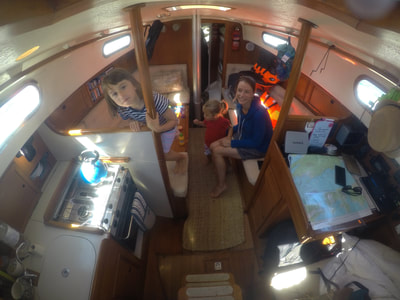
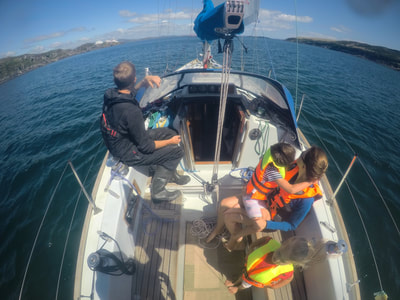
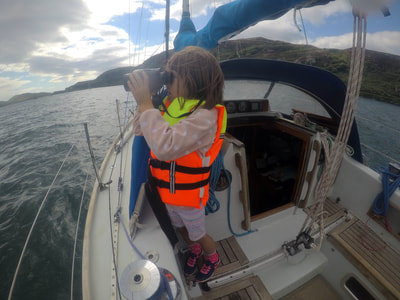
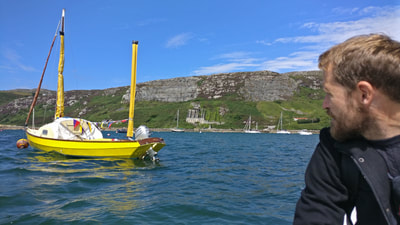

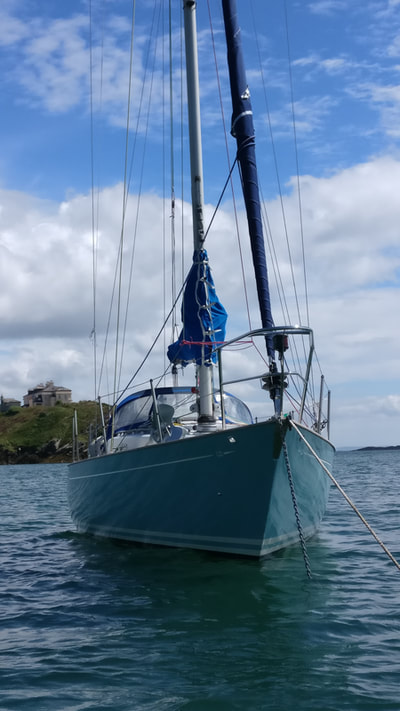
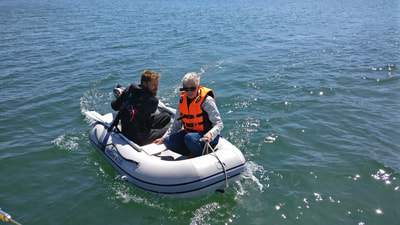
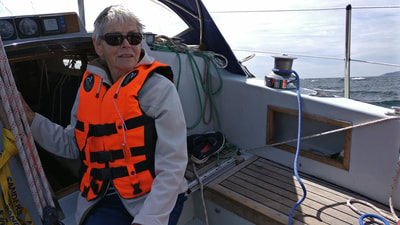
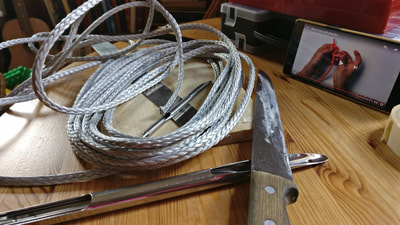
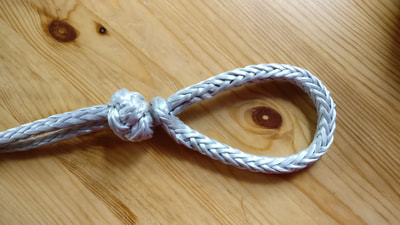
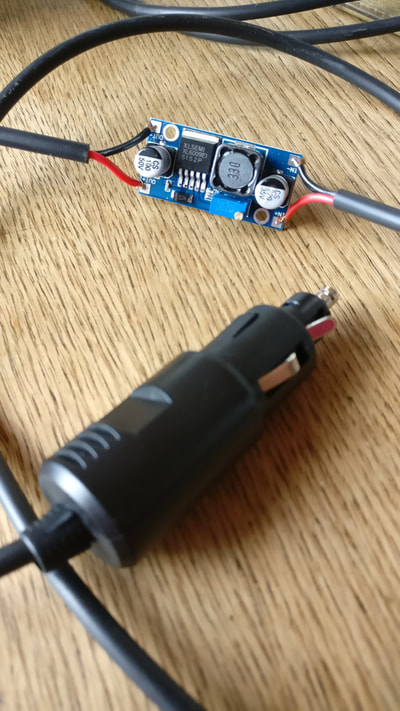
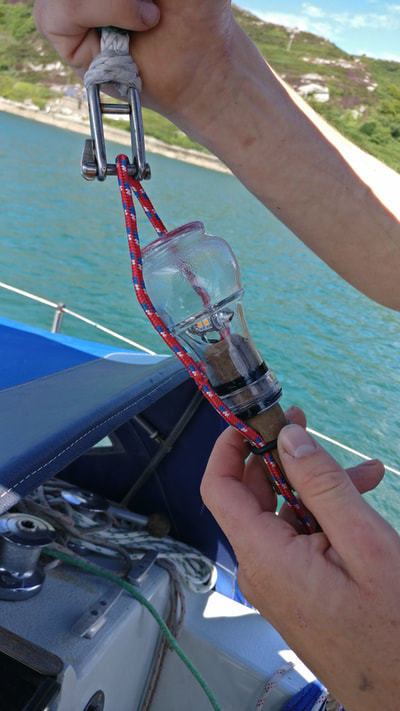
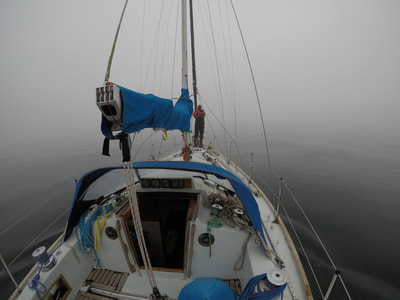
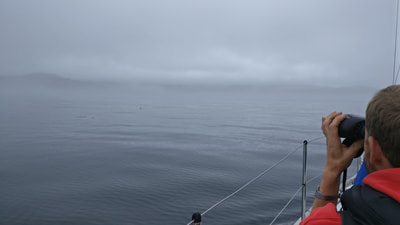
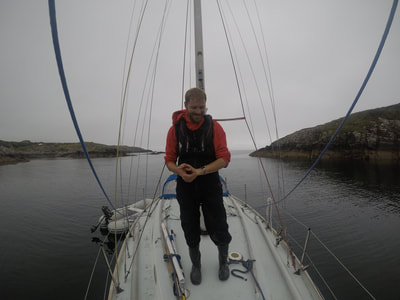
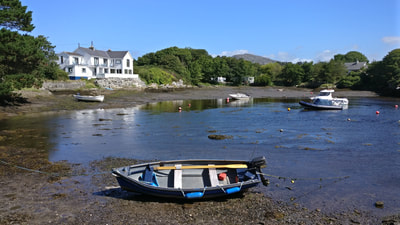
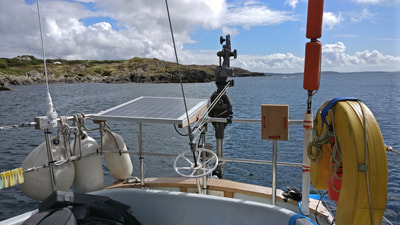
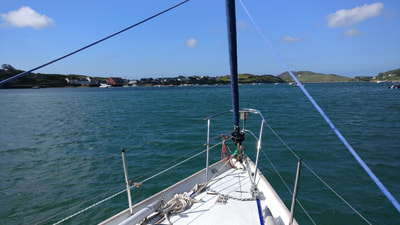
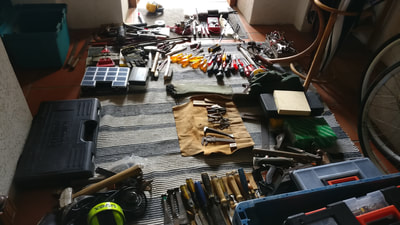
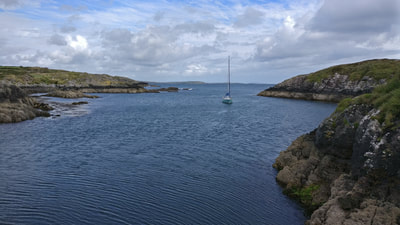
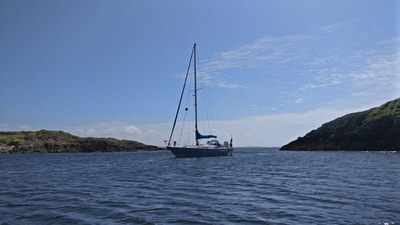
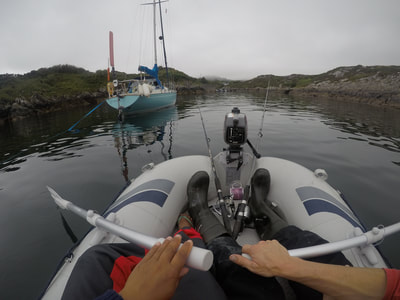
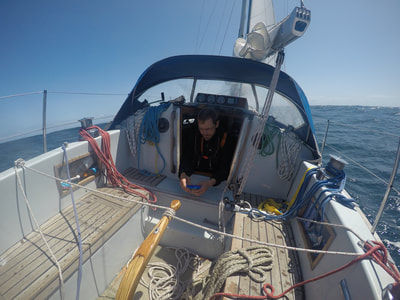

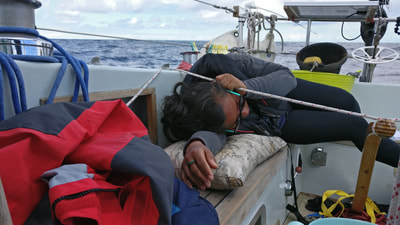
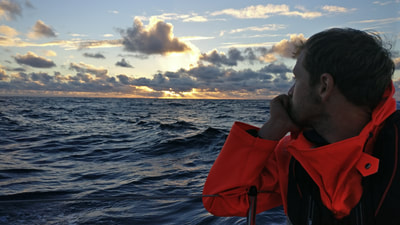

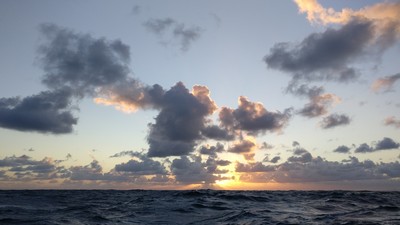
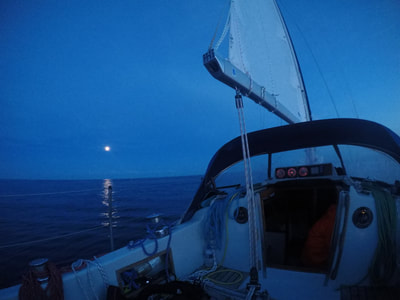
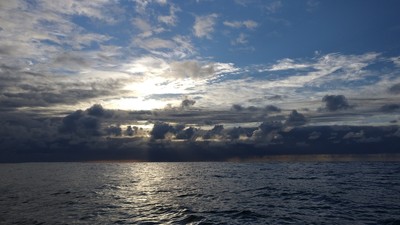
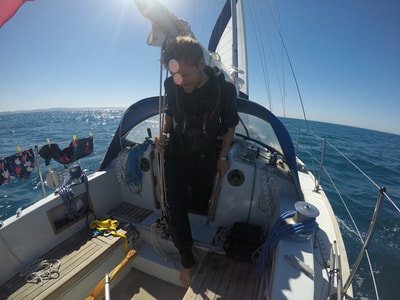
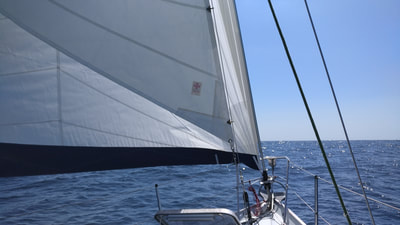
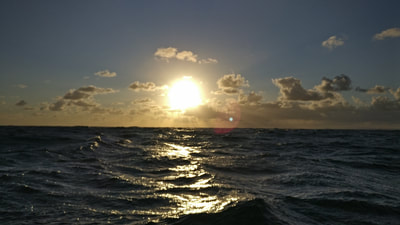
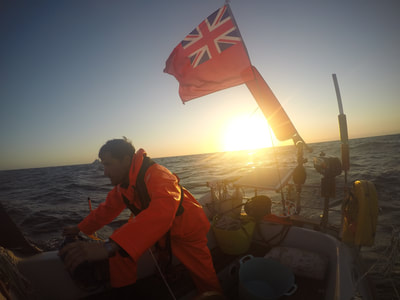
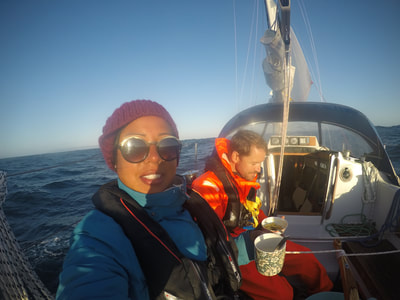
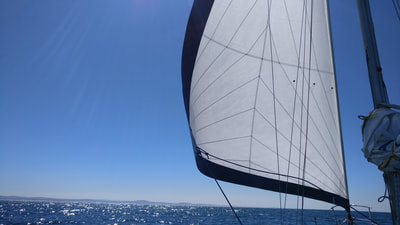
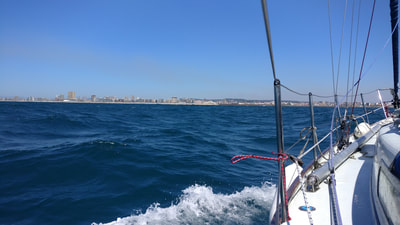

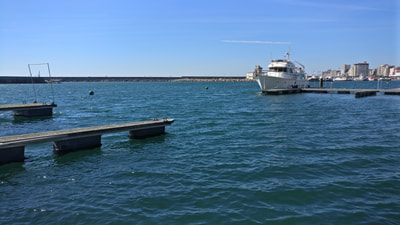
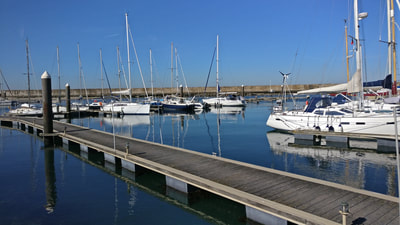
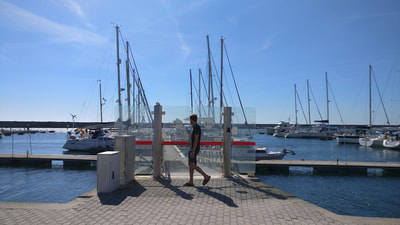
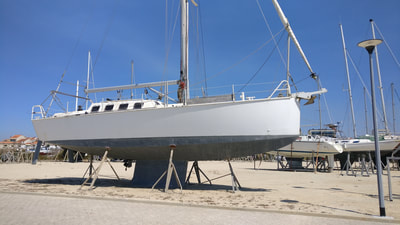
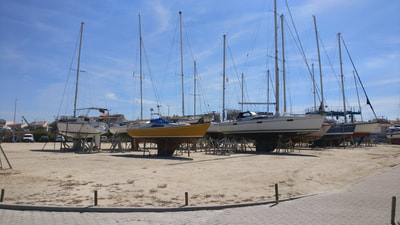
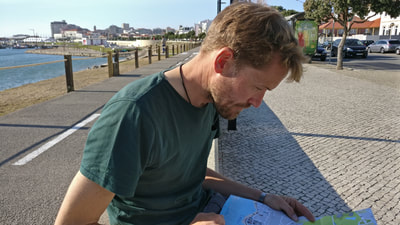
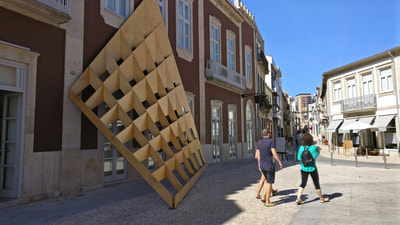
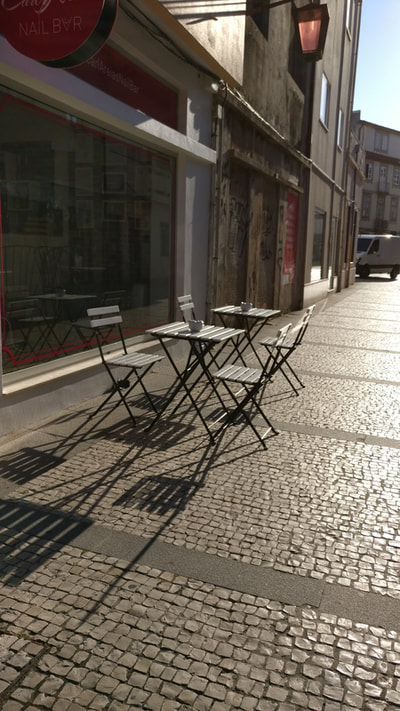
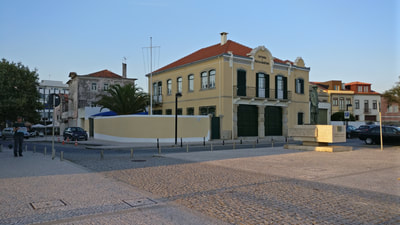
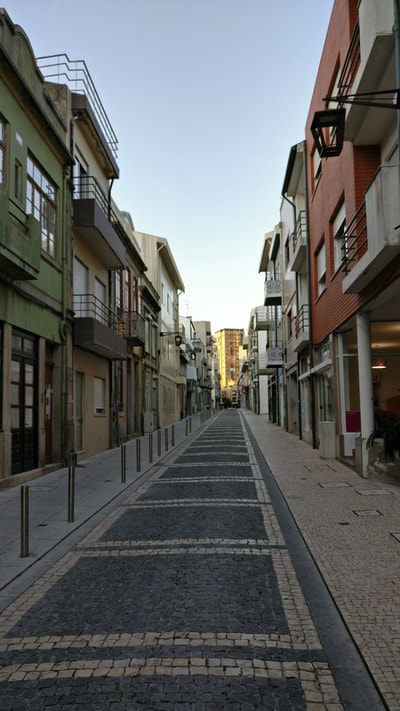
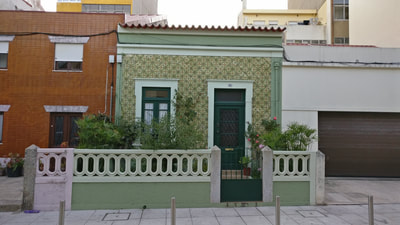
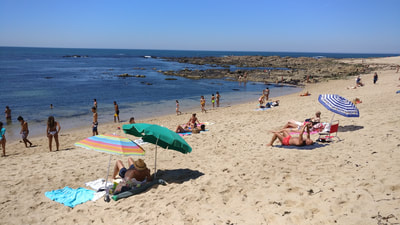
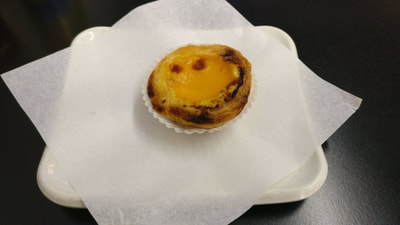
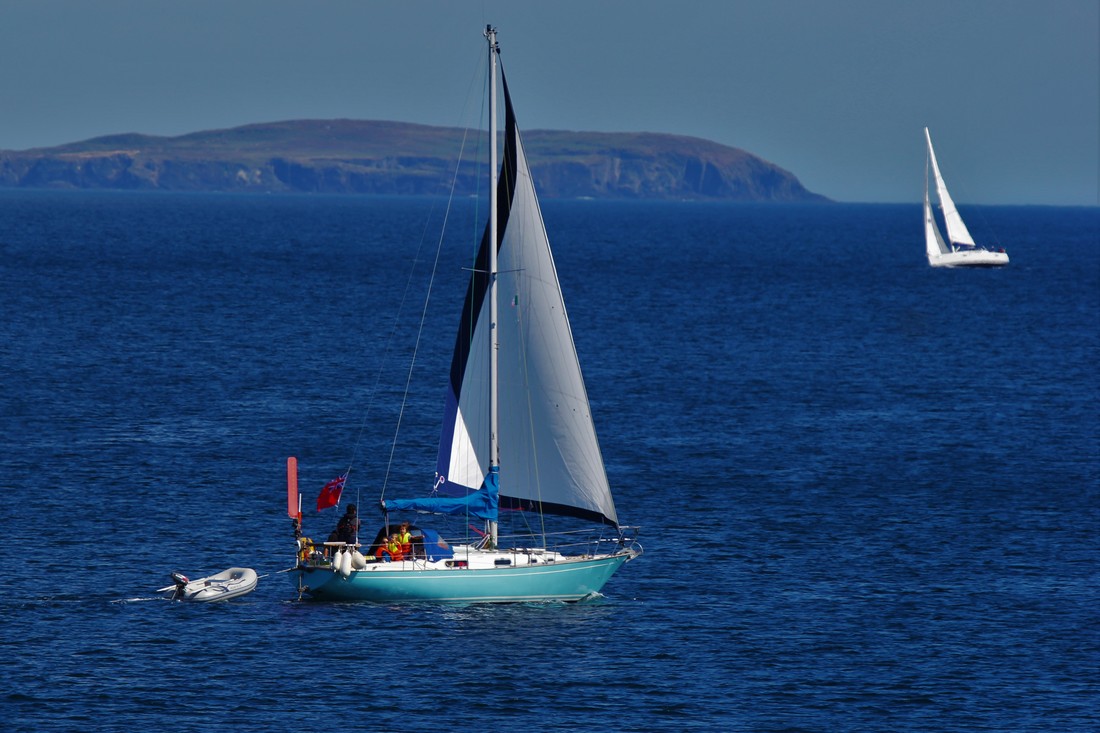
 RSS Feed
RSS Feed